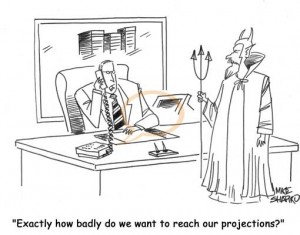In Mark Bickford’s post he discusses the ideas that contrary to popular belief, promoting ethics in the workplace can actually help rather than hinder a business. In the article- “Is it better for business to actually do good or to just look like it’s doing good?” Craig Dowden expands on this idea as well. He states that organizations that demonstrate corporate citizenship behaviours (he defines as “investments made in environmental, social, or governance initiatives”) can be up to 9 times more successful in reaching their business goals. Both Authors prove that Ethics can not only not hurt a business but can quite positively influence it.
The popular saying of “Nice guys finish last” is the mentality many people have not only in the business world but in everyday situations, whether it comes to relationships, competitions or your job, many people believe the honest way is the worst way. I disagree with this mindset and believe if enough opened their eyes and look at the facts that are provided in Mark Bickford’s link in his blog and the article I included in here they would realize that Nice guys can finish first. No matter what business it is, and what it’s objectives are, following the rules will do nothing if not help your business.
